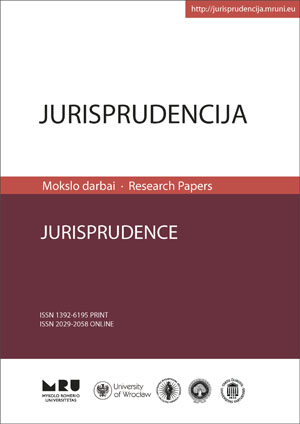LIETUVOS DARBO TARYBŲ TEISINIO STATUSO YPATUMAI
FEATURES OF THE LEGAL STATUS OF LITHUANIAN WORKS COUNCILS
Author(s): Rytis KrasauskasSubject(s): Law, Constitution, Jurisprudence, Labour and Social Security Law
Published by: Mykolas Romeris University
Keywords: social partnership; collective rights of workers, works council; collective representation of employees through works councils; collective representation of civil servants through works councils;
Summary/Abstract: This article reviews assumptions that determined the introduction of works councils into Lithuanian labor law, analyses changes in their legal status, identifies practical problems related to the creation and operation of works councils, and pays special attention to the problems of works councils in civil service.One of the main goals of the legalization of works councils in Lithuania was to ensure the implementation of collective rights for those employees who do not want to belong to trade unions. That is why Lithuanian works councils were given extremely broad powers of collective representation of employees at the employer level on 1 July 2017, without making a real distinction between works councils and trade unions. After the entry into force of the 2017 Labor Code, works councils lost the right to conclude collective agreements at the employer level and to initiate a collective labor dispute due to interest, thus the collective rights of employees were essentially narrowed. Nevertheless, such regulation is seen as a legitimate means of social engineering.In this article, it is concluded that in order to ensure the effective implementation of the rule of mandatory collective representation of employees not only should legal effects be applied, but soft pressure measures should also be used. Implementation of the latter measures directly depends on the activity of employees in exercising their rights to vote in works councils. After assessing peculiarities of the legal status of civil servants, it is proposed to apply the legal norms regulating the institute of works councils in civil service mutatis mutandis, adjusting the court practice formed on this issue accordingly.
Journal: Jurisprudencija
- Issue Year: 29/2022
- Issue No: 2
- Page Range: 213-231
- Page Count: 19
- Language: Lithuanian

